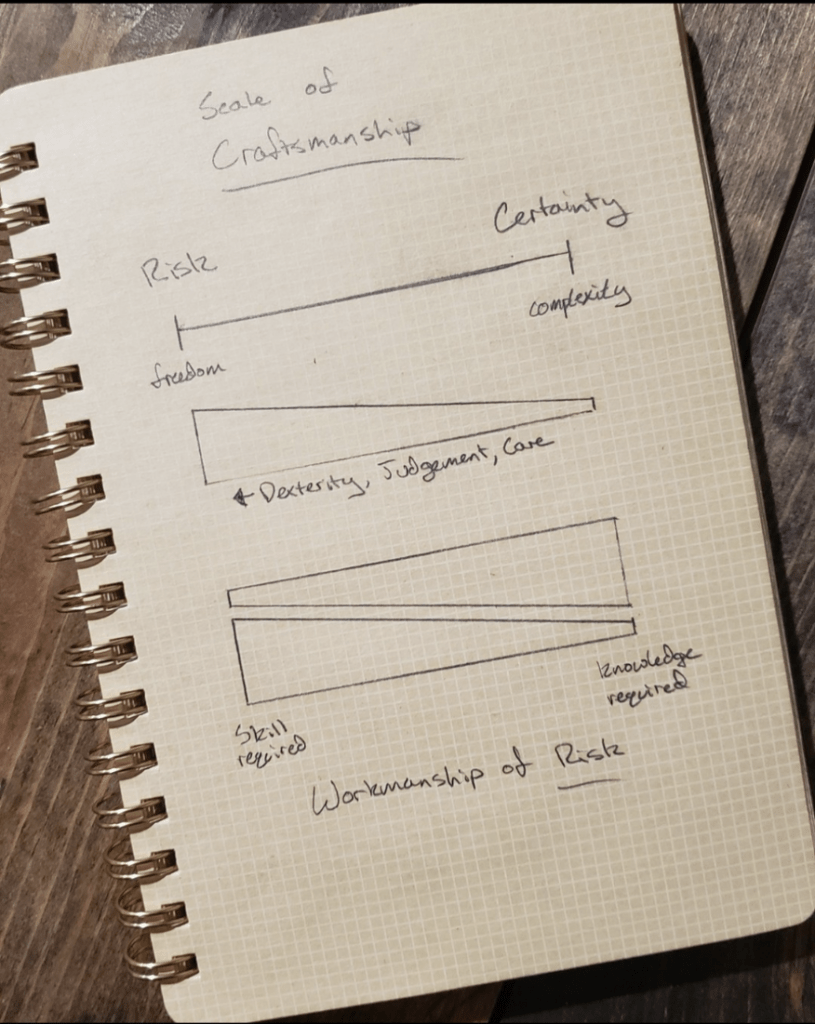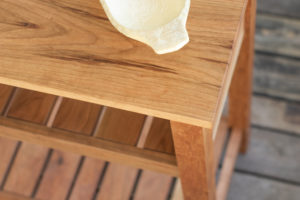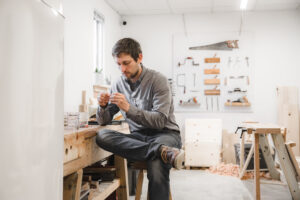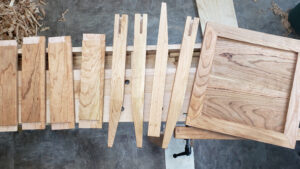Photo: Taiwanese craftsman making a very small vase & lid on the lathe.
A follow-up of Part 1: Risk & Certainty, Freedom & Complexity. Dexterity, Judgement and Care are what I would associate with the term Craftsmanship or Skill.
On the scale of Risk vs Certainty, we can use the example of Hand Tools vs Machines. As freedom increases with less jigs and controls used in manufacturing machines, the Craftsmanship (aka Dexterity, Judgement & Care) must increase significantly to guarantee each piece is cut properly and will fit the final assembly. This is most often noticed in hand-cut dovetails with perfectly matched pieces, no gaps.
As complex machines add certainty to the process, dexterity, judgement and care are less necessary.

Passion of handmade
It’s worth noting: this is where the passion for ‘handmade’ is noticed. Furniture made mostly by machine is thought to be somewhat ‘soulless’. The attention, care, judgement & dexterity that goes into a piece requiring years of practice, developing the skill to reach this outcome with hand tools, this is the passion of handmade.
The thought that a real human offered real care, intention and skill into making each piece gives value in the form of a somewhat indescribable feeling of joy, as if the user can feel the craftsman’s care through the piece itself. This feeling can’t be forced, so you can decide for yourself whether this is important to you.
More about Skill in part 3.




